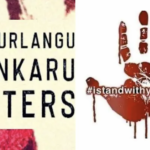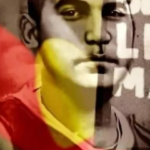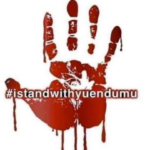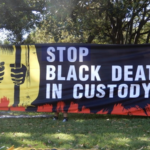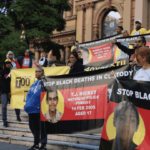Police Officer Acquitted of Fatally Shooting Teen Must Testify at Coronial Inquest

Former Northern Territory Police Officer, Zachary Rolfe is legally required to attend the Coronial Inquest into fatal shooting of Indigenous teenager Kumanjayi Walker when it resumes next week, despite his attempts to claim he should not have to attend because the coroner is biased against him and the evidence he will be required to give is subject to client legal privilege.
The inquest, which is shaping up to be the most expensive in the Northern Territory, has been marred by delays and distractions, a number of which have centred around whether Zachary Rolfe and another police officer have a legal right to refuse to provide evidence.
Rolfe Must attend and give evidence
The Coroner’s Court, led by Coroner Elisabeth Armitage, previously determined that witnesses could not decline to answer questions by invoking the privilege, which Mr Rolfe did when he first appeared at the inquest.
Her ruling was initially upheld by the Northern Territory Supreme Court, and again earlier this year in the state’s highest court, the Court of Appeal.
Losing his appeal against a directive to give evidence means Mr Rolfe can be forced to answer a coroner’s questions about his killing 19-year old Kumanjayi Walker in Alice Springs on 9 November 2019.
Coroner can ask a broad range of questions
The Coroner has power to ask questions about a broad range of matters, including Mr Rolfe’s racist text messages, his misuse of body-worn cameras, other incidents involving the use of excessive force, as well as an allegedly falsified police recruitment application – all of which have been extensively reported by the media since the original trial.
No power to independently bring criminal charges
While the Coronial Inquest can recommend criminal charges be considered against an individual after reviewing and considering all the evidence and presenting its final report and recommendations, the Department of Public Prosecutions makes any final decision regarding prosecution.
Principle of double-jeopardy
It’s important to note that Zachary Rolfe has been found not guilty, and he cannot be tried for the murder of Kumanjayi Walker twice, except in extremely limited circumstances where fresh and compelling evidence comes to light.
This is known as the principle of double jeopardy which is founded on the notion that a person who has been put through the ordeal of a criminal prosecution and acquitted should be able to move forward with his or her life without the threat of further prosecution.
This also means Mr Rolfe can confidently participate in the Coronial Inquest with little to no fear of being prosecuted a second time.
Acquitted of murder
Zachary Rolfe was acquitted of murder, manslaughter and engaging in a violent act causing the death of Kumanjayi Walker after a Supreme Court trial in 2022.
He was seen having a beer at a Beach Club in Bali with former SAS Soldier Ben Roberts-Smith in September in a photo posted to social media.
The photo was posted on the private account of a serving Queensland Police Officer but found its way into the mainstream.
The Queensland Police said it would instigate an investigation into whether the post breached QPS guidelines – the outcome of that internal investigation is not known. And it’s not clear whether Mr Rolfe is still overseas.
Back here in Australia over the past few months, Zachary Rolfe’s legal team have been continuing their bid for him not to have to appear at the Coronial Inquest. This week a suppression order relating to allegations of bias made by Zachary Rolfe, asking Coroner Elisabeth Armitage to step down from her role in the Kumanjayi Walker inquest, has been lifted.
Request for the coroner to step aside
In the information now publicly available, Mr Rolfe has argued that the impartiality of the inquest has been compromised by Ms Armitage taking part in Indigenous ceremonies in Yuendumu.
However, others, including the North Australian Aboriginal Justice Agency (NAAJA) have defended Ms Armitage’s decision to have her face painted by Mr Walker’s mother while at Yuendumu, and says the act was one of “basic courtesy and respect.”
Importantly, the Coroner’s Court has already heard the community meetings and conversations which took place in Yuendumu would not be part of the formal evidence used by the coroner to determine findings and recommendations.
However, Mr Rolfe’s legal team has suggested that the inquest’s two-day visit to Yuendumu during proceedings last year created a perception of bias against Mr Rolfe.
Ms Armitage is reported to be considering the request by Mr Rolfe to recuse herself, and will make a decision sometime within the next week.
However, given that he has been compelled to give evidence, and his appeals against that decision have failed, he is required to do so. Not appearing can result in his arrest.
Mr Rolfe has also accused Ms Armitage of colluding with police to have him dismissed from the force. He is disputing his dismissal from the NT Police Force earlier this year, which occurred after he published a lengthy statement criticising the former police commissioner, the coroner, and the ongoing inquest.
It’s been a long road to finding answers for Kumanjayi Walker’s family and community. He was fatally shot three times in 2019, during a bungled arrest and subsequent judicial processes were hampered by pandemic lockdowns.
Police report scathing of “militarised policing”
Earlier this year, the NT Police finally released its report into Kumanjayi Walker’s death.
In it, NT police commander, David Proctor was scathing of the culture of the NT police force at the time of Kumanjayi Walker’s death, pointing out the “militarisation” of policing in the NT.
In the decade to May 2020, he said, 192 of the 718 NTPOL recruits – about 26.4% – were former ADF personnel.
“This is a vast over-representation of former military members recruited to police the Northern Territory who do not proportionally represent the populace of the community they serve,” Proctor wrote.



